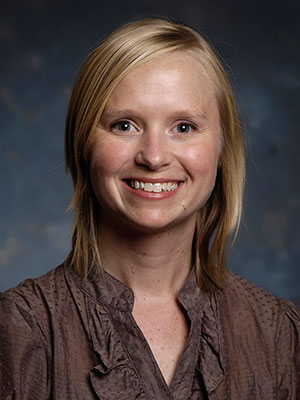
On May 16, the 2023 Dean's Excellence Awards were announced. Chere L. Stewart, M.D. is one of four faculty members to earn the award for the category of Teaching. Stewart, a clerkship director for OBGYN since 2014, says she is both humbled and honored to receive this acknowledgment.
Stewart's history with Heersink School of Medicine dates back to her time as a medical student. She graduated from Heersink School of Medicine and remained at UAB Hospital for her residency. This long-term connection with the school and facility in Birmingham, Alabama, contributes to how important this recognition is to her. She notes that the congratulations and encouragement from current students, residents, and faculty colleagues have been special.
As a clerkship director, Stewart oversees the education of 18-20 students every eight weeks, with six blocks of students each academic year, totaling 120-130 students. She establishes the didactics for these students and ensures that the clerkship platform as a whole is consistent and a positive experience for students.
She sees herself as a tiny part of an effective whole and likens her role to that of a symphony conductor. She cannot play all the instruments simultaneously, so she welcomes the expertise and skills of her fellow faculty and knowledgeable residents to educate students in the program.
According to Stewart, her love for working with students encouraged her pursuit of the position she is in now. "Once I started working with the students in the clerkship director role, I loved it so much. We had the opportunity with some transitions in our own department to change over to kind of that residency leadership position. I really love the students so much that I wanted to continue in that role."
Because rotations for third-year medical students look drastically different than the more traditional classroom setting of the first two years, Stewart also strives to set the proper expectations for students entering this fast-paced, hands-on learning environment. "They do have limited classroom experiences, and we really try to focus on cases, different patient scenarios, or differential diagnoses as opposed to just reading and doing PowerPoint presentations. So a lot of their learning is on them."
An emphasis throughout the curriculum is listening and learning from the patients and focusing on the humanity of the patients being administered to. Stewart believes that perspective creates the space for more effective learning. "If you model that care, you're invested in your patients, and you show that care, then the students see that. So modeling is really important. In our curriculum, we do have simulated cases, and we try to bring out the important humanistic parts of taking care of a patient and not just what the complication or disease process may be."
One piece of advice Stewart gives students early on is something she was told as a medical student herself: students should read about their patients and diagnoses at night. She says students tend to remember concepts—high blood pressure, for example—when they take care of a patient with high blood pressure and take the time to read and research about it at night. This method connects the concept with a human the student cares about.
She also believes providing appropriate resources to students early on is crucial to their success. She reinforces the importance of the textbook and ensures students receive helpful question banks when preparing for exams. Students can also access an online curriculum with additional resources and lectures. Combining these resources with the modeling of care students see on rotation, the clerkship program strives to best prepare students for careers within the medical field.
Stewart notes that she could not do what she does without the support and assistance of the great educators around her. "I'm surrounded by a lot of faculty who really enjoy teaching. That's why they're here. They could all be in private practice somewhere else, but they really enjoy teaching residents and students. That culture within our department just feeds down to our residents who enjoy teaching as well."
One of the aspects of her role she enjoys most is seeing the progression of her students. Many of her students stay in Birmingham for their residencies and then will transition into faculty members themselves. "Somebody that was my student is now my partner and colleague in my own department, and it just makes me excited to follow along."
She sees the accomplishments throughout their careers and feels humbled she was the "tiniest part" of their journeys. They are constant reminders of how fulfilling her job is.